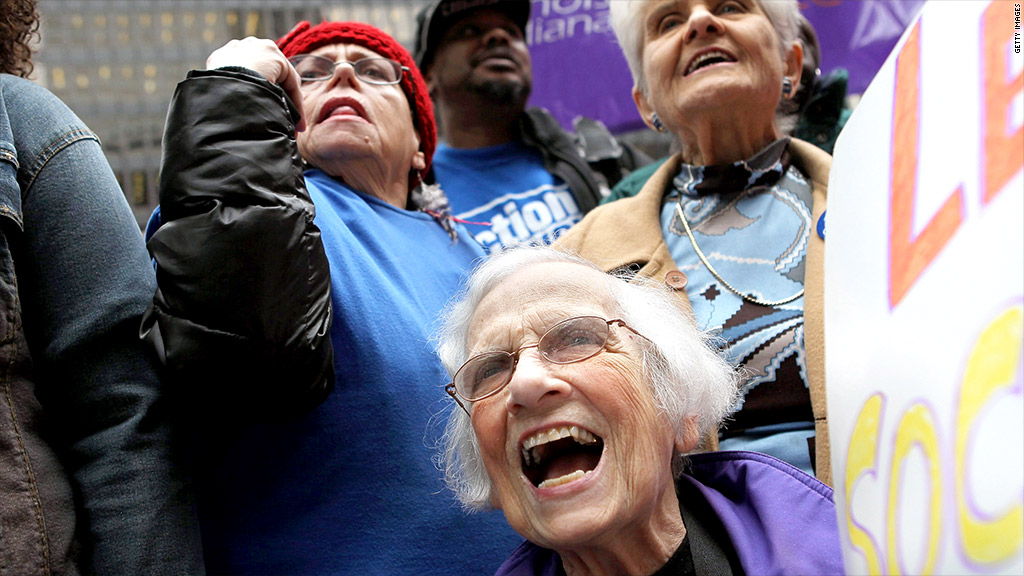
Mitt Romney and his running mate, Paul Ryan, are accusing President Obama of hurting seniors by slashing $716 billion out of Medicare.
Obama, meanwhile, is attacking Ryan for wanting to "end Medicare as we know it."
These heated exchanges come as both sides look for ways to wring savings out of Medicare before the entitlement program runs out of money. They just differ on who will pick up the tab.
Obama, through his health reform law, cuts the rates of providers, including hospitals and insurers. Ryan, on the other hand, wants to turn Medicare over to the private sector by giving senior citizens vouchers to buy coverage from insurance providers.
Both plans include spending caps. But under Obama's Affordable Care Act, providers could see larger decreases if costs grow faster than projected, while Ryan shifts any additional expenses to beneficiaries.
"It's a different philosophy on who should be bearing the burdens," said Marilyn Moon, a former public trustee of Medicare who heads the health program at the American Institutes for Research, a social science research group.
Related: 7 key swing state economies
The future of Medicare has come into the spotlight as the two parties battle for the crucial voting block of senior citizens. Both sides are trying to come up with ways to curb the entitlement program before it can't afford to cover all its costs, which is expected to happen in 2024.
Here are the plans in a nutshell:
Obama's health reform saves money by reducing payments to hospitals, skilled nursing facilities, home health care agencies and, in particular, insurers who provide Medicare Advantage managed care plans. It also creates the Independent Payment Advisory Board, which is charged with keeping Medicare costs under control.
The law specifies that benefits cannot be cut to reduce expenses.
Ryan's budget proposal would retain a traditional fee-for-service Medicare option, but would also allow insurers to offer seniors a range of choices. At a minimum, the companies would have to provide benefits equivalent to traditional Medicare.
The government would provide a so-called "premium support" payment that would cover the cost of either traditional Medicare or the second-least expensive insurer's plan, whichever is less. Seniors can pay for additional coverage, such as dental or vision benefits.
Romney has not adopted his running mate's plan, but said it "makes important strides in the right direction."

Consumer advocates worry that seniors would wind up paying much more for care under the Ryan plan. They point to a Congressional Budget Office report that shows spending would be between 35% and 42% lower for new enrollees under the Ryan plan versus traditional Medicare.
"By restructuring the program, it could have a very harmful effect on beneficiaries in the long run," said Edwin Park, vice president for health policy at the left-leaning Center on Budget and Policy Priorities.
Supporters of the Ryan plan, meanwhile, say that senior citizens will end up sacrificing under the president's health reform law. That's because many providers could stop accepting Medicare if rates are slashed too low. Even the Medicare actuary has said the cuts are unsustainable.
"They may have traditional Medicare, but they won't have a doctor," said Rea Hederman, research fellow at the conservative Heritage Foundation.


